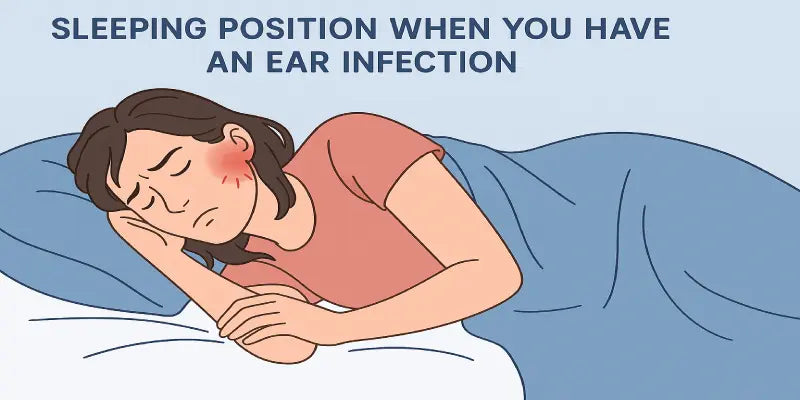
Sleeping Against the Clock: Shift Work Tips for Men
Due to our modern 24-hour lifestyle, many people in India work full-time night shifts, evening shifts, rotational shifts, or other irregular schedules.
According to the National Sleep Foundation, there is a connection between shift work, extended working hours, and many health conditions. These include a higher risk of metabolic disorders, heart disease, gastrointestinal issues, obesity, and some malignancies.
In India, more men do night shifts as compared to women due to several factors, society, safety are few among them.
Those who work night shifts or other irregular shifts have to compromise on one thing: sleep. Sleep deprivation and exhaustion are two of the most common issues among shift workers. On average, night-shift workers receive two to three hours less sleep per 24 hours than people who work normal shifts.
Our bodies are naturally built to sleep at night and stay attentive during the day. We all have a 24-hour cycle known as the circadian rhythm. At night, the circadian pacemaker stimulates the pineal gland to release the sleep hormone melatonin, which reduces alertness and increases your urge to sleep.
Working against this pattern causes us to feel "jet lagged" but without the benefits of a vacation, which means that sleeping during the day will lower the quality and quantity of our sleep when compared to sleeping at night.
Sleep Tips for Shift Workers
Millions of workers in India are required to adjust their sleep habits to a job that is not 9 to 5. Can this be done?
According to experts, it can be using the following tips
1. Keep the room dark
Invest in light blocking curtains and eye masks if you have bright light in your room at bedtime. According to scientific studies, you should close your binds before falling asleep for better sleep quality.
A 2022 study found that even moderate ambient brightness during sleep, as opposed to sleeping in a dimly lit room, impairs cardiovascular performance and raises insulin resistance the next day. So turn off the lights in the room.
Also you can invest in a good quality pillow that can help you sleep faster and support your neck and spine.
2. Have a consistent sleep schedule
It could be hard for you in the beginning to sleep and wake up at a fixed time, but you can trick and teach your mind and body to conform to the new sleep pattern with time.
Just as your job timing has changed your night into daytime, you must change your day into night time for your body. Having a set bedtime and wake-up time is the first step toward attaining this and finding a balance.
If necessary, set limits with family members and friends regarding your resting time. Try to maintain the same sleep routine as much as possible, especially on holidays.
3. Use blue light blocking glasses
Greater exposure to blue light emitted by your electronics such as phones, computers, tablets, and household devices not only suppresses the sleep hormone melatonin and affects your vision, but it may also affect your longevity.
Using blue-light blockers can help you live longer and sleep better. These glasses filter blue light, reducing exposure to it. You might also explore using apps that alter your phone's screen brightness based on dawn and sunset.
4. Limit caffeine intake during working hours
Those who work night shifts, coffee is a must but you need to stop consuming it to sleep better. Your body is already working against its biological clock. As you become older, using coffee to keep awake during a night shift can only harm your health.
It can cause disrupted sleep cycles, reduced sleep efficiency and duration, slow-wave sleep (SWS), and REM sleep. Drink herbal and caffeine-free beverages instead.
5. Eat healthy food and at a fix time everyday
Choose easy-to-digest foods over heavier ones. Maintain an appropriate balance of clean and nutritious foods, such as fruits, vegetables, whole grains, nuts and seeds. Keep some healthy snacks handy. Try to eat each meal at a fixed time everyday.
Avoid eating large, heavy meals three to four hours before bedtime. Avoid processed and refined sugar foods, which cause energy levels to spike and fall quickly.
Don't smoke or consume alcohol close to bedtime because these stimulants can disrupt your sleep and leave you feeling exhausted the next day. And don’t forget to stay hydrated.
6. Create a bedtime routine to unwind
A consistent bedtime routine can help you sleep better and faster. Engage in easy pre-bedtime rituals to relax your muscles and unwind. Take a warm shower, try Yoga, breathing exercises, or meditation. Before going to bed, diffuse essential oils to create a relaxing atmosphere.
Side Effects of Night Shifts
Working night shifts can make you feel isolated and disconnected with your friends and family as you’ll have a different schedule than them. This can be one of the reasons for depression.
It has also been discovered that people who work night shifts are more likely to have an accident. As sleep is directly linked with focus. If you work shifts, it is recommended that you take public transportation to and from work.
Regular night-shift can cause serious heart problems and it can also cause digestive problems specially when transiting.
Conclusion
Working on night shifts is stressful. You need to adjust physically, mentally, and socially. However, you will become habitual to your new routine over time. You will also learn important skills such as developing new habits and prioritizing sleep.
Don't get dismayed if difficulties arise; this is unavoidable. Growth and transformation require effort, but the benefits of effectively managing obstacles and setting boundaries to achieve a good work-life balance are important.
If you wake up 7-8 hours but still feel sleepy and tired during your working hours, maybe you are not getting quality sleep. You can consider using a Sleepsia microfiber pillow, it is very lightweight and provides ultra support to your neck and spine. This also keeps you cool as the fiber fill and permeable pillowcase allow heated air to escape.








